Filter by

Italy’s Top Products in World Trade: The Fortis-Corradini Index
This book analyzes Italy’s external competitiveness in detail and introduces a new index, devised by Marco Fortis and Stefano Corradini for Fondazione Edison, that highlights the strengths of Italy’s foreign trade. Compared with the Trade Performance Index compiled and updated annually by UNCTAD/WTO’s International Trade Centre, the Fortis-Corradini Index (FCI) provides greater sectorial …
- Edition
- -
- ISBN/ISSN
- 978-3-319-15817-4
- Collation
- -
- Series Title
- -
- Call Number
- -

Carpe Diem: The Poetics of Presence in Greek and Latin Literature
This is a book about pleasure. It is a particular pleasure to acknowledge the debts I have incurred when writing this book. My greatest debt is to the two supervisors of the Cambridge dissertation on which this book is based; I owe a great deal to my Doktormutter Emily Gowers for her generosity, learnedness, and inspiration. Every page benefited from her advice. I also owe a great deal to Rich…
- Edition
- -
- ISBN/ISSN
- 9781009039789
- Collation
- -
- Series Title
- -
- Call Number
- 874.01 ROH c
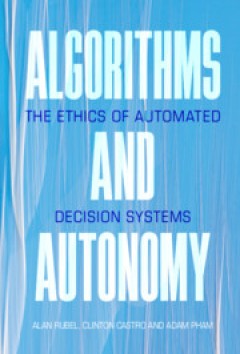
Algorithms and Autonomy: The Ethics of Automated Decision Systems
Algorithms influence every facet of modern life: criminal justice, education, housing, entertainment, elections, social media, news feeds, work . . . the list goes on. Delegating important decisions to machines, however, gives rise to deep moral concerns about responsibility, transparency, freedom, fairness, and democracy.
- Edition
- -
- ISBN/ISSN
- 9781108895057
- Collation
- -
- Series Title
- -
- Call Number
- 174.90063 RUB a

Essentials of Pharmacology for Anesthesia, Pain Medicine, and Critical Care
In anesthesiology, pain medicine, and critical care, practitioners at all levels need help to stay current with the continually evolving drug knowledge-base and trainees need tools to prepare for in-training and board exams that increasingly test their knowledge of pharmacology. This practical book is aimed at both readerships. It features a unique and practical chapter on the United States Foo…
- Edition
- -
- ISBN/ISSN
- 978-1-4614-8948-1
- Collation
- 185 b/w illustrations, 36 illustrations in colour
- Series Title
- -
- Call Number
- -

Sustainable Indoor Lighting
Serving to maximize reader insights into the use of sunlight – considering light transfer, application to indoor illumination and in particular to museum lighting – in the color rendering properties of light sources and the architectural aspects for natural indoor lighting, the final part of this boo collects other related but important elements including architectural issues, environmental…
- Edition
- -
- ISBN/ISSN
- 978-1-4471-6633-7
- Collation
- X, 355
- Series Title
- Green Energy and Technology
- Call Number
- -
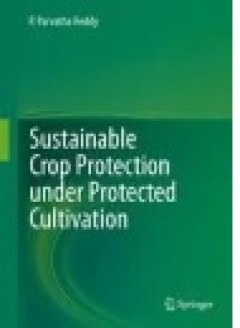
Sustainable Crop Protection under Protected Cultivation
This book focuses on pests (insect and mite) and diseases (fungal, bacterial, viral and nematode) in protected horticulture (fruits, vegetables and ornamentals) using physical, cultural, chemical, biological, host resistance, and integrated methods. It opens with chapters describing the setting in which integrated pest and disease control operates, i.e., the greenhouse and its environment. Subs…
- Edition
- -
- ISBN/ISSN
- 978-981-287-952-3
- Collation
- XXX, 434
- Series Title
- -
- Call Number
- -

Towards Energy Transparent Factories
This monograph provides a methodological approach for establishing demand-oriented levels of energy transparency of factories. The author presents a systematic indication of energy drivers and cost factors, taking into account the interdependencies between facility and production domains. Particular attention is given to energy flow metering and monitoring. Readers will also be provided with an…
- Edition
- 1
- ISBN/ISSN
- 978-3-319-20868-8
- Collation
- XXXII, 284
- Series Title
- Sustainable Production, Life Cycle Engineering and Management
- Call Number
- -
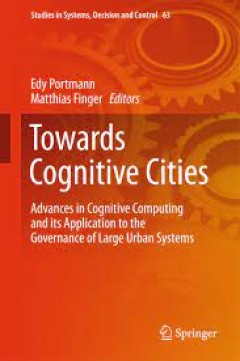
Towards Cognitive Cities
This book introduces the readers to the new concept of cognitive cities. It demonstrates why cities need to become cognitive and why therefore a concept of cognitive city is needed. It highlights the main building blocks of cognitive cities and illustrates the concept by various cases. Following a concise introductory chapter the book features nine chapters illustrating various aspects and dime…
- Edition
- 1
- ISBN/ISSN
- 978-3-319-33798-2
- Collation
- XVII, 215
- Series Title
- Studies in Systems, Decision and Control
- Call Number
- -
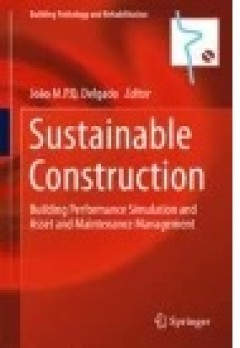
Sustainable Construction
This book presents a collection of recent research works that highlight best practice solutions, case studies and practical advice on the implementation of sustainable construction techniques. It includes a set of new developments in the field of building performance simulation, building sustainability assessment, sustainable management, asset and maintenance management and service-life predict…
- Edition
- -
- ISBN/ISSN
- 978-981-10-0651-7
- Collation
- VIII, 228
- Series Title
- Building Pathology and Rehabilitation
- Call Number
- -
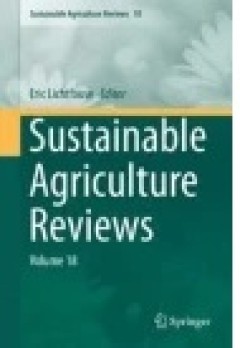
Sustainable Agriculture Reviews
This book features review articles that analyze current agricultural issues and knowledge. It also proposes novel, environmentally friendly solutions that are based on integrated information from such fields as agroecology, soil science, molecular biology, chemistry, toxicology, economics and the social sciences. Coverage examines ways to produce food and energy in a sustainable way for huma…
- Edition
- Volume 18
- ISBN/ISSN
- 978-3-319-21629-4
- Collation
- VI, 319
- Series Title
- Sustainable Agriculture Reviews
- Call Number
- -
 Computer Science, Information & General Works
Computer Science, Information & General Works  Philosophy & Psychology
Philosophy & Psychology  Religion
Religion  Social Sciences
Social Sciences  Language
Language  Pure Science
Pure Science  Applied Sciences
Applied Sciences  Art & Recreation
Art & Recreation  Literature
Literature  History & Geography
History & Geography